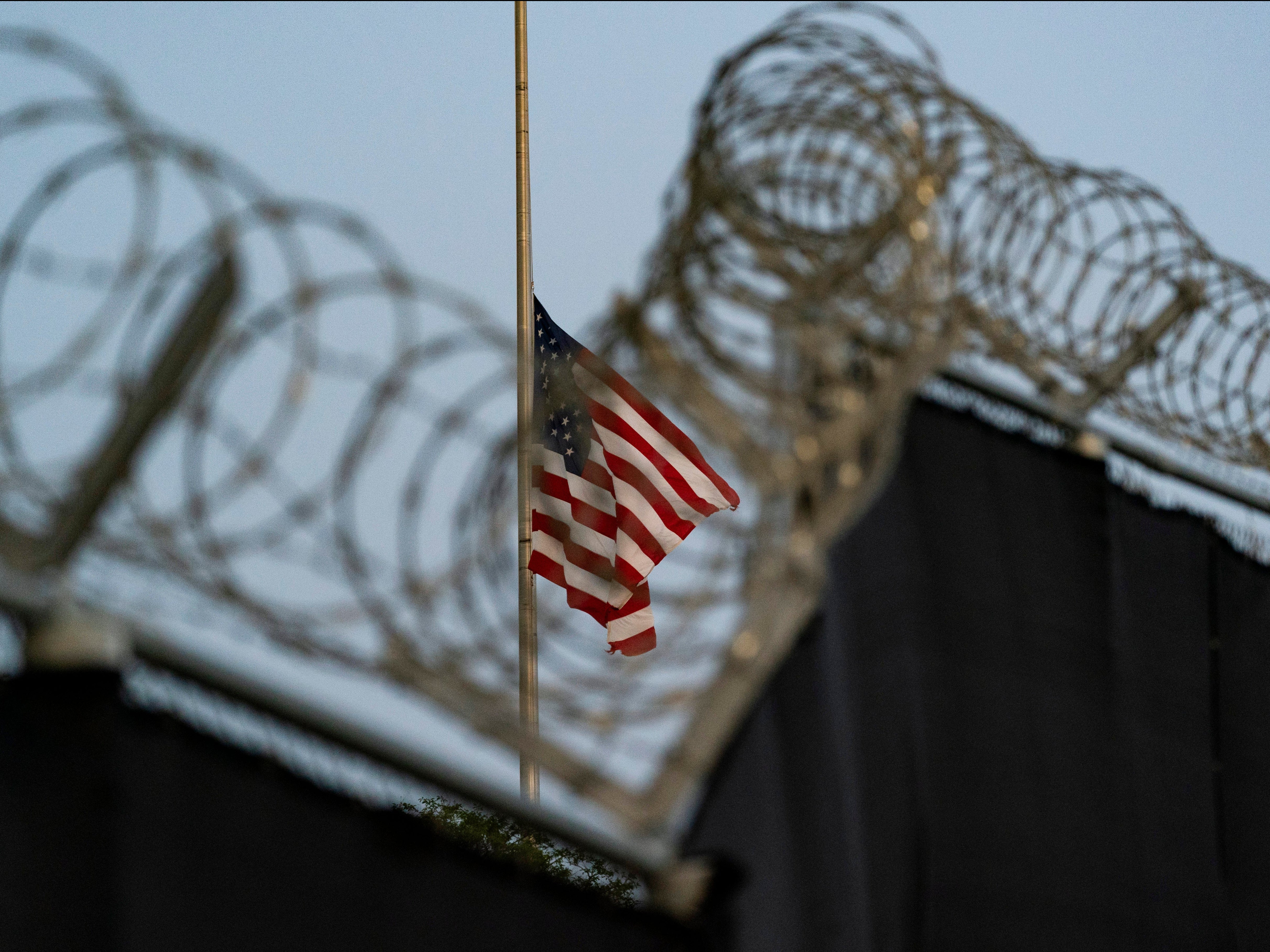I’ve worked with Guantanamo inmates and I’ll never forget their stories
Many of my clients expressed surprise that there was no real fact-finding process and that some of the most disordered men were first to go home, presumably because the detention authorities were happy to get rid of floridly psychotic prisoners


Your support helps us to tell the story
From reproductive rights to climate change to Big Tech, The Independent is on the ground when the story is developing. Whether it's investigating the financials of Elon Musk's pro-Trump PAC or producing our latest documentary, 'The A Word', which shines a light on the American women fighting for reproductive rights, we know how important it is to parse out the facts from the messaging.
At such a critical moment in US history, we need reporters on the ground. Your donation allows us to keep sending journalists to speak to both sides of the story.
The Independent is trusted by Americans across the entire political spectrum. And unlike many other quality news outlets, we choose not to lock Americans out of our reporting and analysis with paywalls. We believe quality journalism should be available to everyone, paid for by those who can afford it.
Your support makes all the difference.When I first began working on behalf of Guantanamo detainees in 2002, I would never have believed that twenty years after the first detainees arrived on January 11, 2002, there would still be 39 men at the prison, 28 of whom have never been charged with anything. Nearly 800 men have processed through the prison over the last 20 years, some there for a few years, many more for decades.
The ACLU estimates that 86 percent of the men who came through Guantanamo were not captured on any battlefield, but were sold for bounties in Afghanistan or Pakistan. Only 5 percent were actually captured by US troops. Nearly 100 percent were tortured, both at Bagram before they came to Afghanistan and/or at Guantanamo.
The Rumsfeld Department of Defense knew early on that the vast majority of these prisoners were nobodies — innocent men in the wrong place at the wrong time or bottom-level foot soldiers. Human Rights Watch estimates that of the 197 detainees released during the Obama administration, “85 per cent are not even suspected of terrorist activities.”
In terms of recidivism, the Department of Defense estimated that 121 men were suspected of extremist or militant activities in the countries to which they were released after their release, but of those, just eight were released by the Obama Administration. The Bush administration released 500 people in an apparently random set of decisions, often pursuant to requests by foreign leaders. Many of my clients expressed surprise that there was no real fact-finding process and that some of the most disordered men were first to go home, presumably because the detention authorities were happy to get rid of floridly psychotic prisoners.
The Trump administration released a single detainee, not because they thought he had been wrongly detained but pursuant to a deal made with Saudi Arabia. The Biden administration has also released a single detainee in its first year and has not revived the Obama-era position of Special Envoy to Close Guantanamo.
Twelve men who are there have already been cleared for release by the Periodic Review Board process initiated by the Obama administration, but the US government has yet to identify a country willing to take them, either because they cannot go back to their country of origin, their country of origin cannot provide adequate security guarantees, or no third country will take them. Throughout the Obama administration, the special envoys traveled the world trying to find countries that would take these men. Not surprisingly, countries were not eager to do a favor for a country whose Congress prohibited any Guantanamo inmate being brought to the United States for any reason, including necessary medical treatment.
Only 11 of the 800 or so men brought to Guantanamo have actually been charged with crimes and committed for trial before military commissions. Five have been charged with capital crimes; despite its stated opposition to capital punishment, the Biden administration has not dropped the capital charges. These 11 “high-value detainees,” Khalid Sheikh Mohammed and a handful of others allegedly at the center of the 9/11 plotting, were held at dark sites in various third countries and were not brought to Guantanamo until 2006. Their trials still have not begun, with decades of preliminary matters and judges and prosecutors moving on and off the case in an elaborate game of legal snakes-and-ladders.
Why should we care about 39 foreign nationals languishing for up to 20 years in a camp at a US naval base at the very tip of Cuba? First, on a human level, more than two-thirds have been jailed under extremely harsh conditions, despite the clear consensus that they are not guilty of any chargeable crime. A dozen have been cleared for release but cannot leave because American intransigence has created a stalemate where no country will take them or the Americans impose unreasonable conditions for their repatriation. Many of these men are now aged, in poor health, and not able to access necessary medical care. Their parents have died; their children have grown up without them. I have met some of those children in Pakistan, born after their fathers had gone to Afghanistan. They know their fathers only from monthly phone calls.
Second, Guantanamo is far more costly for each prisoner than maintaining the Lifestyles of the Rich and Famous. Recent figures show the annual cost of keeping these 39 men is more than $540 million, or just under $18 million per man per year. This is not because conditions are plush. It is a security structure that is redundant in the extreme, with 24-hour armed motorized patrols, oceans of razor wire, importation of everything, guards that rotate in and out on brief nine-month deployments. Escape would be nearly impossible in any event, surrounded by a no-man’s land with Cuba and shark-infested waters. Yet year after year, more than a half billion dollars is spent, when the average federal prisoner costs less than 1 percent of what it costs to house men at Guantanamo. And federal prisons house many convicted terrorists; Guantanamo does nothing to assist in counter-terrorism. Indeed, it harms such efforts.
Guantanamo remains an indelible stain on the rule of law. Indefinite, perhaps lifetime detention without trial, is something out of the dungeons of Pol Pot or medieval despots. The inability to put together a military commission trial for nearly twenty years is something out of Bleak House. And the answer that today’s autocrats give when they arrest their opponents is “Guantanamo.” Isis dressed its prisoners in orange jumpsuits.
The ability of the United States to assert the moral high ground in matters of due process, of respect for international law norms, or the defense of Americans who are political prisoners has been compromised, perhaps irretrievably. The time has come to release the men who have not been charged, to try the men who have, and to close this terrible symbol of a two-decades long moral failure.
Eric Lewis is a human rights lawyer living and working in New York. He also sits on the board of the company which owns The Independent
Join our commenting forum
Join thought-provoking conversations, follow other Independent readers and see their replies
Comments